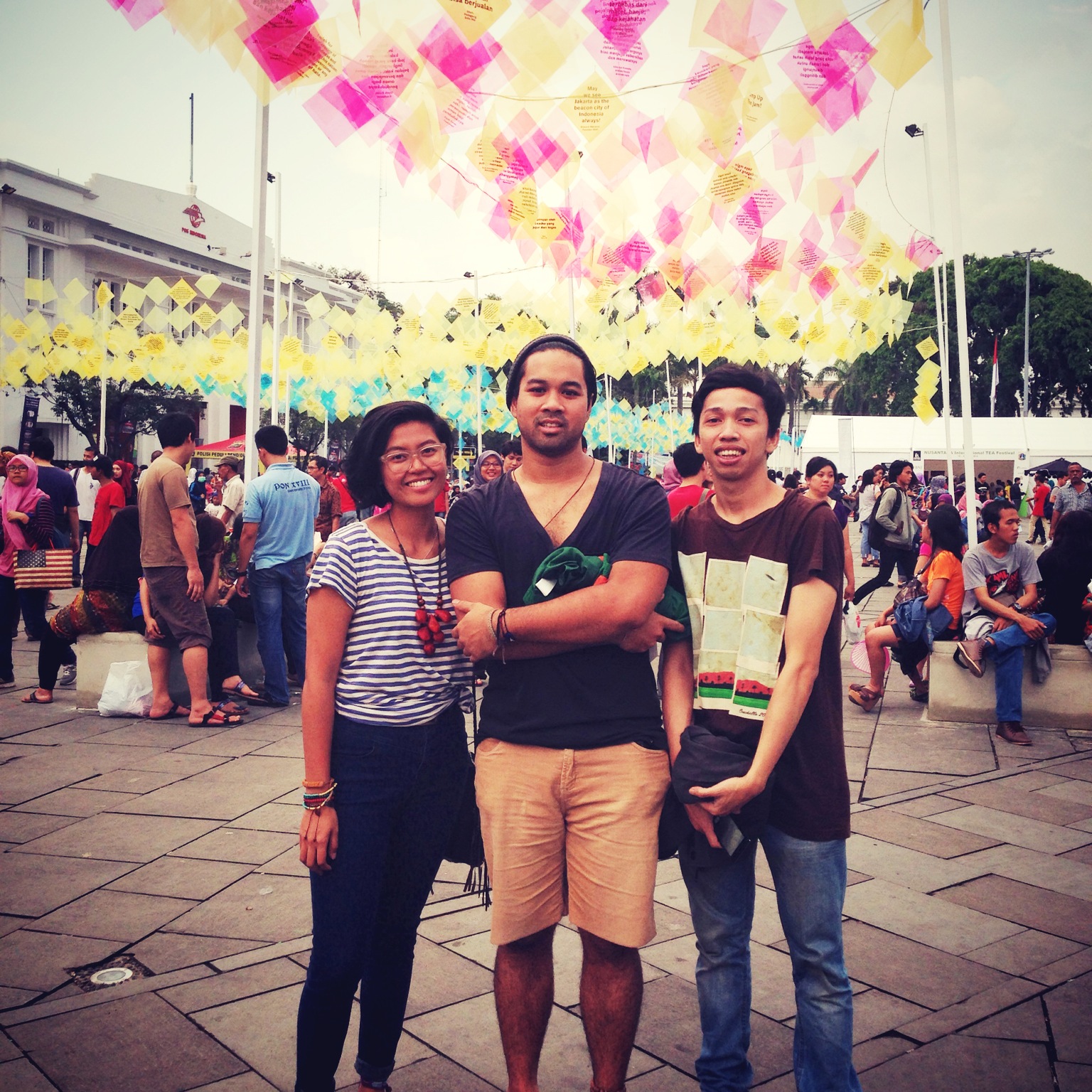Would you consider an Indonesian, born and raised in the United States, stupid for relocating to Jakarta? “Stupid” was the sentiment I initially felt when asked why I moved to the Big Durian. This is a brief account of my adventure to reconnect with my Indonesian roots.

My upbringing was interesting as an only-child born to traditional Javanese parents in Los Angeles. My name is Batara Indra Soepraba, but family and friends call me Obat. With that name, it attracted questions and taunts from classmates. My religion and cultural traditions also drew my teachers’ attention. Kids are brutally honest, so being different was difficult among the Johns and Michaels as well as being the only kid who couldn’t eat pork or celebrate Christmas.
Fortunately, I found refuge with other Indonesian-Americans that exist and began to practice our language and heritage just as other immigrant kids did in SoCal. In high school, it was cool and advantageous if you spoke your parents’ language or performed with a traditional dance group on the weekends. There are the few exceptions, but most of us were proud to say we have a heritage other than our American culture.
At first, I thought finding work opportunities in Indonesia would be easy. Apparently being a foreigner actually deterred many potential employers because obtaining KITAS sponsorship was not a cheap and easy process, just like in the United States. Getting into contact with potential employers also proved to be difficult. I’ve lost count on how many job inquiries went unanswered. Luckily, Lindkedin was helpful. I cold email individuals at prospective organizations and asked for introductions from my connections. Although a job never materialized from this platform, I did secure solid contacts and utilized them after I found an employer willing to sponsor my KITAS. The experience has been humbling and now empathize my Indonesian friends’ frustration in looking for work in America after college.
With a job in hand, moving to Indonesia did not appear to be a big challenge with the culture my parents instilled, and the insights from my Development Studies classes at the University of California – Berkeley. Every four to five years, we would also take family trips to Indonesia to visit relatives. With the many arisan and family drop-ins under my belt, there was enough cultural knowledge to validate my confidence. 2010 was also the last trip, so I thought the transition should not be difficult after visiting so recently. After arriving in Jakarta, I was totally wrong.

The most difficult aspect of my transition was trying to get around town without a car. For the first few months, getting lost with inexperienced taxi drivers and being late for appointments after taking the wrong angkot or metro mini/kopaja were normal. A map of Jakarta was always in hand just in case my phone and power bank died. Back home, Google Maps and public transportation websites are reliable. In Jakarta, even the TransJakarta website didn’t have adequate information. I avoided taking an ojek or bajaj for several months because of my poor bargaining skills. To complicate my trips further, street signs are limited and building numbers are never in order. Through these exhausting ordeals, my Bahasa Indonesia was not as proficient as I thought. Thankfully though, with family and close friends’ help, not only can I find my way around now, I can help others, too.
When it came to food, my parents cooked traditional Indonesian dishes, so my adjustment was more on price rather than taste. Upon arriving, I assumed everything to be relatively cheap. My attitude changed after seeing items like meat and cheese cost double or more. Growing up, we were taught in school to eat out less and cook more to save money. In Jakarta, you can get full just on 5000 IDR at a warteg, so cooking was rare. On a side note, I learned what constitutes the true nasi warteg, which is not what’s served at Indonesian restaurants in SoCal. Slowly, I began to shop at the market or through the tukang sayur to save money and get the total “Indonesian experience.”

Finally, it was hard to accept malls to be the preferred weekend hangout destination when travelling is not an option. In LA, going for a hike, relaxing at the park, beach or friends’ houses were the typical activities. Some friends here say they go to malls for the convenience. While this may be true, it’s not convenient to always pay for parking and food just to kill time. So after browsing online and meeting like-minded people, I found many parks and activities to exist outside of malls.
With a year in Jakarta logged, people often ask, “Kamu betah di sini?” to which I quickly respond, “Yes”. Life here can be a headache as you all know, but that’s what makes the capital unique and exciting. The same goes for you all who are planning to study abroad. If I can offer an advice, don’t spend too much time with Indonesians from home. Instead, go out and make new local friends, especially Indonesians who grew up there. They can offer useful insights! I rarely hang out with Expats because with the limited time available, I want to soak up as much culture and stories as possible to enrich my identity. Hopefully, you enjoyed my insights on what someone thinks of Jakarta, from the mind of an Indonesian learning to be Indonesian.
Content Edited by Artricia Rasyid
Photo Credits: Author’s Collection











Nice post. Was totally in your shoes 5 years ago. It’s funny you’re having the same thoughts as I had. Be careful of “the wall”, cause you’re probably going to hit it in year 2 or 3 haha. It’ll pass though.